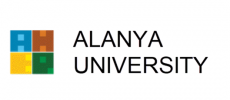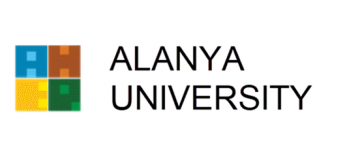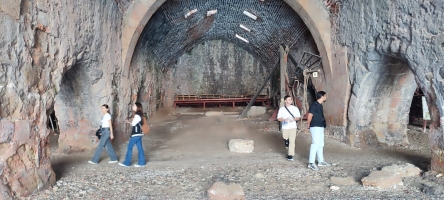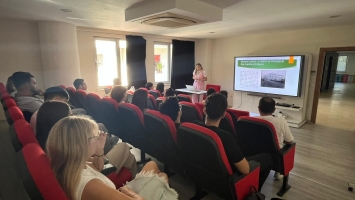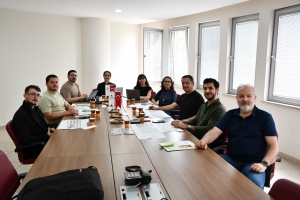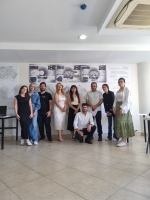The first event of the Alternative Architect(ure)s Series, organized for students and graduates of the Department of Architecture, was held with the participation of Architect and Real Estate Appraise...
Mission
The mission of our Department of Architecture here at Alanya University is to educate highly motivated individuals who excel in initiative, teamwork, and research and design skills, both locally and globally. We aim to produce architects who are technically adept and conscious of their impactful role in designing a thoughtful and innovative future. Our educational approach emphasizes critical thinking, collaboration, and creativity, preparing students to contribute significantly to society and the built environment. We are committed to fostering creative minds that are in tune with contemporary culture, advocate for creativity in education, and can address new challenges with "open minds". Our ambition extends to making a mark on the international stage while upholding ethical values, stimulating curiosity, and blending intellect with sensitivity. Our program stresses the importance of foreign language proficiency, research, collaboration, and diverse activities, aiming to develop well-rounded individuals who positively impact society.
Department of Architecture Program Outcomes:
Department of Architecture Program Outcomes:
| P1 | Ability to apply theoretical and technical knowledge in architecture. |
| P2 | Ability to understand, interpret and evaluate architectural concepts and theories. |
| P3 | Ability to take on responsibility as an individual and as a team member to solve complex problems in the practice of architecture. |
| P4 | Critical evaluation of acquired knowledge and skills to diagnose individual educational needs and to direct self-education. |
| P5 | Ability to communicate architectural ideas and proposals for solutions to architectural problems in visual, written and oral form. |
| P6 | Ability to support architectural thoughts and proposals for solutions to architectural problems with qualitative and quantitative data and to communicate these with specialists and non-specialists. |
| P7 | Ability to use a foreign language to follow developments in architecture and to communicate with colleagues. |
| P8 | Ability to use digital information and communication technologies at a level that is adequate to the discipline of architecture. |
| P9 | Being equipped with social, scientific and ethical values in the accumulation, interpretation and/or application of architectural data. |
| P10 | Ability to collaborate with other disciplines that are directly or indirectly related to architecture with basic knowledge in these disciplines. |
| P11 | Knowing the duties and authorities of the profession, has competence in the protection of natural and cultural values, pays attention to occupational health and safety, and offers solutions to increase space quality. |
| P12 | Recognizes ethics and aesthetics in art and design. |
| P13 | Has knowledge of norms, standards, laws and regulations of the profession. |
| P14 | Understanding of the relationship between people and buildings, and between buildings and their environment, and of the need to relate buildings and the spaces between them to human needs and scale |
| P15 | Knowledge of the fine arts as an influence on the quality of architectural design |
| P16 | Adequate knowledge of physical problems and technologies and the function of buildings so as to provide them with internal conditions of comfort and protection against the climate, in the framework of sustainable development |
